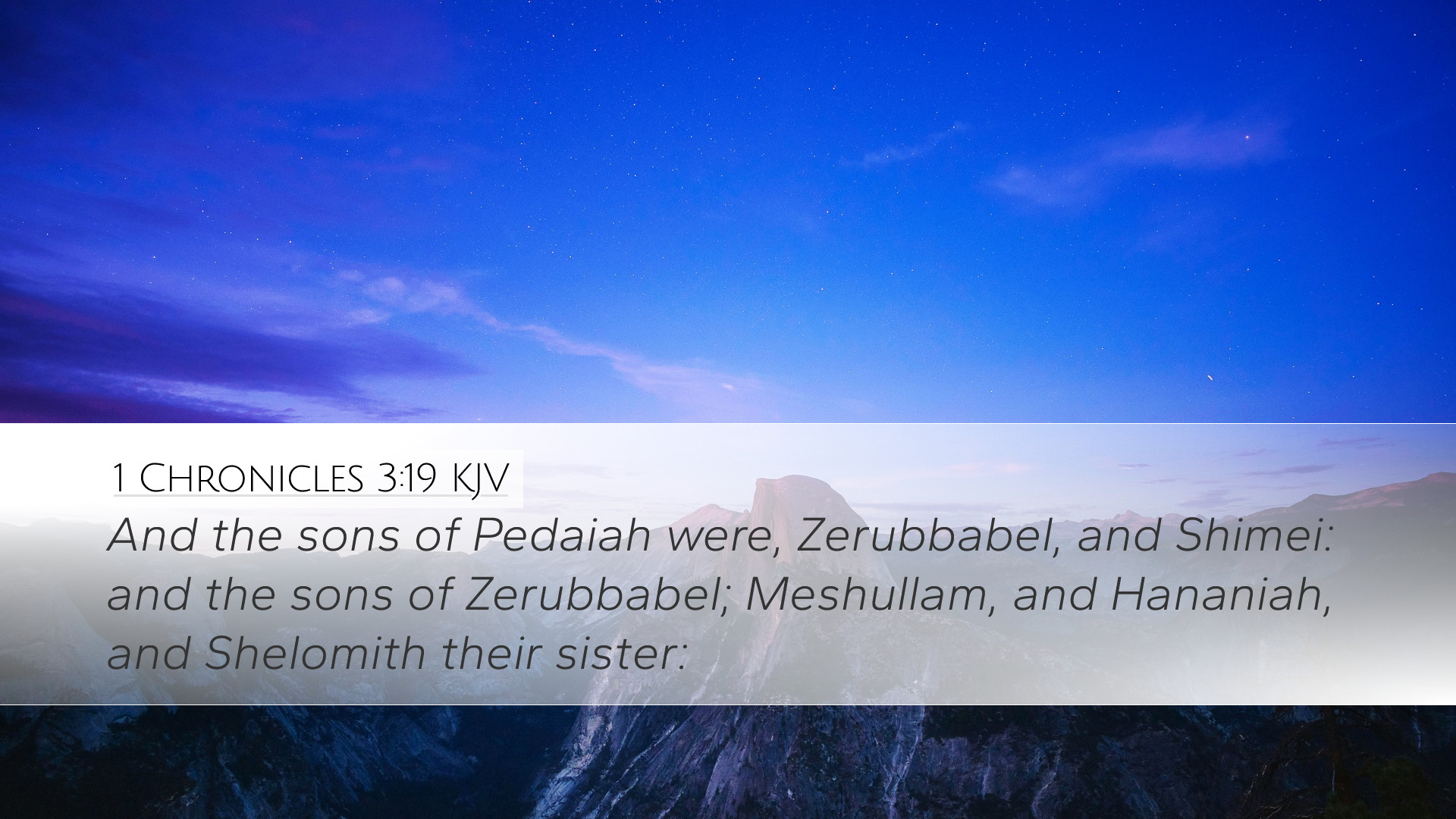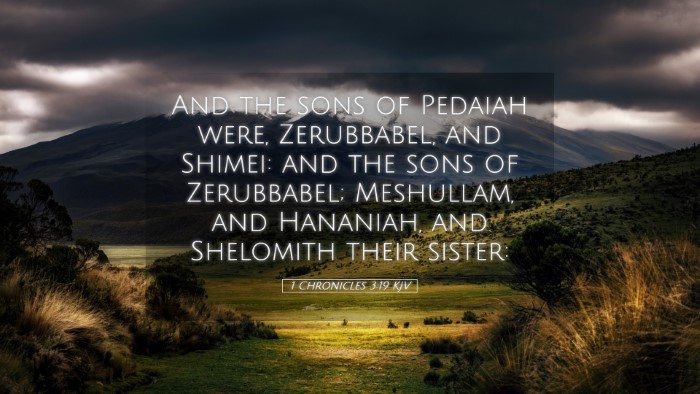Commentary on 1 Chronicles 3:19
Bible Verse: 1 Chronicles 3:19 - "The sons of Pedaiah were Zerubbabel and Shimei. And the sons of Zerubbabel were Meshullam and Hananiah and Shelomith was their sister."
Contextual Overview
This verse is situated in the genealogical record of the lineage of David, emphasizing the importance of ancestry in Biblical tradition. Chronicles aims to reaffirm the heritage of the Jewish people, particularly those returning from exile, linking them to their royal roots in David.
Insights from Commentaries
Matthew Henry's Commentary
Matthew Henry notes the significance of Zerubbabel as a key figure in the genealogy of Jesus Christ, stemming from the line of David. His mention in this context underlines God’s faithfulness in preserving a remnant through whom the Messiah would come. The genealogies serve as a reminder of God's covenant promises, linking the people back to their rightful place:
- Preservation of the Lineage: Henry emphasizes that God’s providence maintained this lineage over generations.
- Role of Zerubbabel: He highlights that Zerubbabel was not only a descendant but also a leader during the return from Babylonian captivity, carrying the legacy forward.
Albert Barnes' Commentary
Albert Barnes presents further insights on the individuals mentioned, explaining the roles and traditions surrounding them. He indicates that Zerubbabel was instrumental in rebuilding the temple and restoring worship in Jerusalem:
- Historical Context: Barnes points out that this record provides historical authenticity to the narratives of Ezra and Nehemiah.
- Emphasis on Names: The specific naming serves to solidify the historical link and serve as a testament to God's continuing work through this family line.
Adam Clarke's Commentary
Adam Clarke offers a theological perspective, interpreting the verse through the lens of redemptive history. Clarke focuses on the implications of being part of God's chosen lineage:
- Spiritual Significance: Clarke highlights the spiritual identity bestowed upon those recorded in genealogies, signifying their role in God's overarching plan.
- Covenant Fulfillment: He observes that the verse is part of the fulfillment of God’s promises to Abraham, Isaac, and Jacob, as it traces not just lineage but a history of divine favor.
Thematic Reflections
This verse serves as a foundation for understanding God's commitment to His people throughout history. The genealogical records are not merely historical data but are interwoven with spiritual truths that reflect God's redemptive purposes. Each name signifies not only a historical figure but also the unfolding of God's plan for humanity.
Practical Applications
- Understanding Identity: For Christians today, the passage reinforces the importance of understanding one's spiritual heritage in Christ.
- Faithfulness of God: This genealogy serves as a reminder of God's faithfulness through generations and encourages believers to trust in His promises.
- Legacy of Leadership: It challenges present-day leaders to reflect on their own legacy and impact on subsequent generations in the faith.
Conclusion
1 Chronicles 3:19, encapsulated within a detailed genealogical narrative, affirms the sovereignty and faithfulness of God throughout history. By examining the insights from well-respected commentators like Matthew Henry, Albert Barnes, and Adam Clarke, we gain a deeper appreciation for the significance of this verse both in its historical context and its application to contemporary Christian faith.


